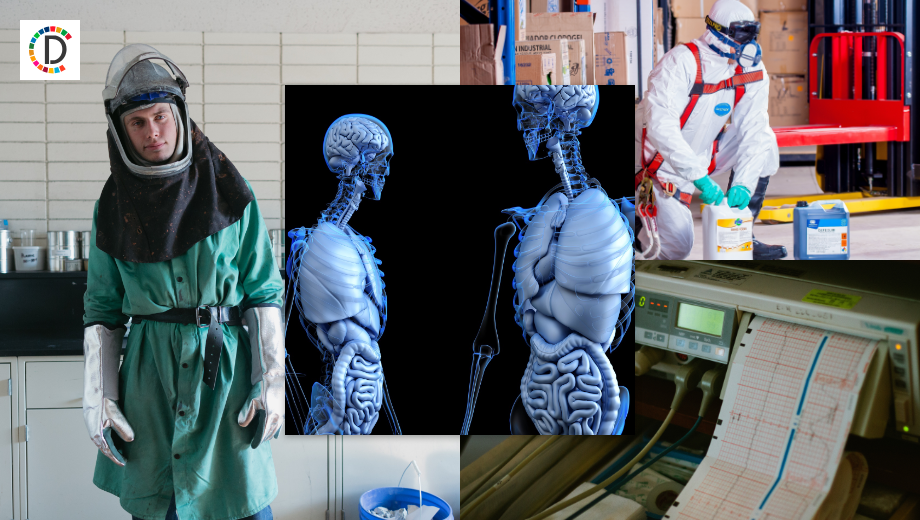RP Centre AIIMS, IIT Delhi to explore feasibility of using drones for transporting corneal tissue

- Country:
- India
The Dr Rajendra Prasad Centre for Ophthalmic Sciences at AIIMS in collaboration with IIT Delhi is exploring the feasibility of using drones for transporting corneal tissue from areas in Delhi-NCR lacking eye-transplant facilities to places where such surgeries are available. Head of Cornea Services at RP Centre and Chairman of the National Eye Bank, Jeewan S Titiyal said that similarly, drones can be used for transporting processed corneal tissues to various centres here where patients are awaiting surgeries.
"We are considering the proposal which is at a nascent stage. We will soon write to IIT Delhi in this regard. As a pilot project, these drones would serve Delhi-NCR," he said on Tuesday. On the occasion of the 34th National Eye Donation Fortnight celebrations (from August 25-September 8), he said the National Eye Bank (NEB) at AIIMS collected a record number of corneal tissues last year with 2,234 donor corneas being retrieved, the highest in the past 50 years.
"Out of them, 1,426 were transplanted, a utilisation rate of 65 per cent which is above the national average," Titiyal said. Highlighting that not all donated corneas are suitable for transplant, Tushar Agarwal, Professor of Opthalmology at the RP Centre, AIIMS stressed on the importance of timely retrieval of eyes for transplantation.
"In an ideal situation, the eyes should be donated within six hours of death to ensure best possible surgical outcome in patients receiving the donated corneas," Agarwal said. Once the corneas are retrieved, they undergo a rigorous processing procedure whereby they are screened for various infections, including HIV, hepatitis and STDs, he elaborated.
"Only when one we are assured that they are safe for transplant, we use them on the recipient patients. If it is found to be unhealthy or carrying infection, then we don't use it," Agarwal added. Titiyal said in the first six months of 2019, 1,247 corneas were collected, out of which 942 were utilised.
"We are looking at achieving 3,000 donor tissue collections and getting more than 2,000 transplants in a year," he stated. Namrata Sharma, Secretary Eye Bank Association of India and Professor of Opthalmology at RP Centre, said that nationally 57,996 corneas were collected in 2018 and there have been 26,682 transplants (29 per cent growth from 2012), which amounts to an average 46 per cent utilisation.
"74 per cent of corneas are contributed by seven states -- Gujarat, Karnataka, Maharashtra, Tamil Nadu, Telangana, Andhra Pradesh and Delhi," she said. There are more than 760 institutional members (eye banks and eye donation centres) registered with the Eye Bank Association of India.
"About 15 eye banks, which are two per cent of the 760 organisations, account for more than 80 per cent of the total collection," Sharma said. The NEB has also been actively involved in the training of eye donation counsellors, technicians as well as nursing students from across the country.
"A 100 per cent online death notification system has been in place at AIIMS, which is helping our eye bank counsellors and technicians to approach a greater number of families," Titiyal said. Recently, NEB and ORBO started an online pledge system for organ donation in order to increase awareness about eye donation in the community. This step has simplified the associated formalities for willing donors.
The NEB is also routinely organising programs in schools, colleges and residential areas to promote awareness. "Due to the increased collection and efficient utilisation of donor corneas, we are able to achieve zero waiting list for emergency category patients. Waiting list for other category patients has also been reduced.
"This year, we have started a self-sustainable 'AIIMS - Delhi -- Hospital Cornea Retrieval Program'. The aim is to collect more quality optical tissues to sustain the demand of corneal transplantation centres all over Delhi," he said. The NEB is trying to establish a network of all government hospitals across Delhi-NCR to maximise the collection of donor corneas as well as to avail corneal tissue access to surgeons.
Titiyal further said the National Eye Bank is in the process of developing an app-based programme to track the registration of patients awaiting surgeries which will help them know when their turn will come. After surgery they will have a direct link with the centre and it will contain their symptoms and photographs of their eyes. They will be monitored 24x7.
The AIIMS has also started an integrated AIIMS Delhi HCRP programme for collection and transplantation of corneal tissues. Four hospitals -- RML, Lady Hardinge, DDU, GTB -- have been linked with this programme to improve collection and meet the requirement of Delhi-NCR patients.
(This story has not been edited by Devdiscourse staff and is auto-generated from a syndicated feed.)
ALSO READ
Welfare pension disbursal process begins in Andhra Pradesh
EC curbs on volunteers disbursing pensions spark political slugfest in Andhra Pradesh
Efforts underway to rescue child from borewell in Karnataka village
Karnataka: Child trapped in borewell rescued after 20-hour operation in Vijayapura
Three labourers die of electrocution in Maharashtra’s Thane district










